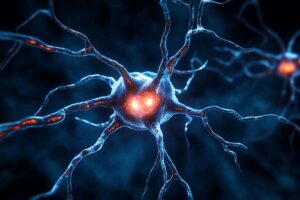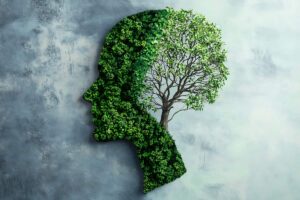

View Topics

Let’s talk about one interesting treatment approach. This is music treatment. Such a method addresses various physical, emotional, cognitive, and social needs. Music therapy is an effective tool for rehabilitation practice. It aids recovery for patients with brain injuries or neurological disorders. This treatment approach helps people recover after strokes, traumatic brain damage, or Parkinson’s…

The brain is a vital organ responsible for all body functions. Sometimes, inflammatory processes develop in it. They can lead to neuron death. Some diseases have irreversible consequences. Today, we will talk about neuroinflammation (NI) of the brain. NI affects people of all ages. In the context of Alzheimer’s, NI is a key factor in…

Robotic technologies are life-changing tools in the medical field. They offer innovative solutions for managing many neurological disorders. We will explore such technologies’ impact on rehabilitation. Virtual reality (VR) provides patients with tailored and immersive experiences. These enhance therapeutic outcomes and are particularly helpful for individuals recovering from stroke or traumatic brain injury. Such technology…

A healthy person feels happier and more cheerful. The most important thing we can have is good neurological health and good psychological health. Everyone should monitor their cognitive health. They are responsible for memory, concentration, attention, and information that we remember. Mental abilities are an essential element in the life of every person. With them,…

The nervous system plays a vital role in human health. Often, neurological diseases have not only a genetic effect but also an external one. Environmental factors can have a rapid impact on human health. Environment and lifestyle are the main factors for health. Healthy sleep, proper nutrition, and activity have a positive effect on brain…

We all want to live fulfilling lives to enjoy every moment. Food plays an important role in our lives, helping us maintain a healthy figure and skin elasticity. Also, food has many nutritional components that have a positive effect on our brain. Vitamins, antioxidants contained in products contribute to improving its functionality. A person may…

In the modern world, we have to live a fast-paced life. It is crucial to stay mindful. Meditation practices will help with this. They have a significant impact on the mind and body. This is deeply rooted in ancient traditions. Modern healthcare increasingly recognizes these techniques for their therapeutic benefits. They are mainly used in…

A healthy person feels happier and more cheerful. The most important thing we can have is good neurological health and good psychological health. Everyone should monitor their cognitive health. They are responsible for memory, concentration, attention, and information that we remember. Mental abilities are an essential element in the life of every person. With them,…

The nervous system plays a vital role in human health. Often, neurological diseases have not only a genetic effect but also an external one. Environmental factors can have a rapid impact on human health. Environment and lifestyle are the main factors for health. Healthy sleep, proper nutrition, and activity have a positive effect on brain…

We all want to live fulfilling lives to enjoy every moment. Food plays an important role in our lives, helping us maintain a healthy figure and skin elasticity. Also, food has many nutritional components that have a positive effect on our brain. Vitamins, antioxidants contained in products contribute to improving its functionality. A person may…